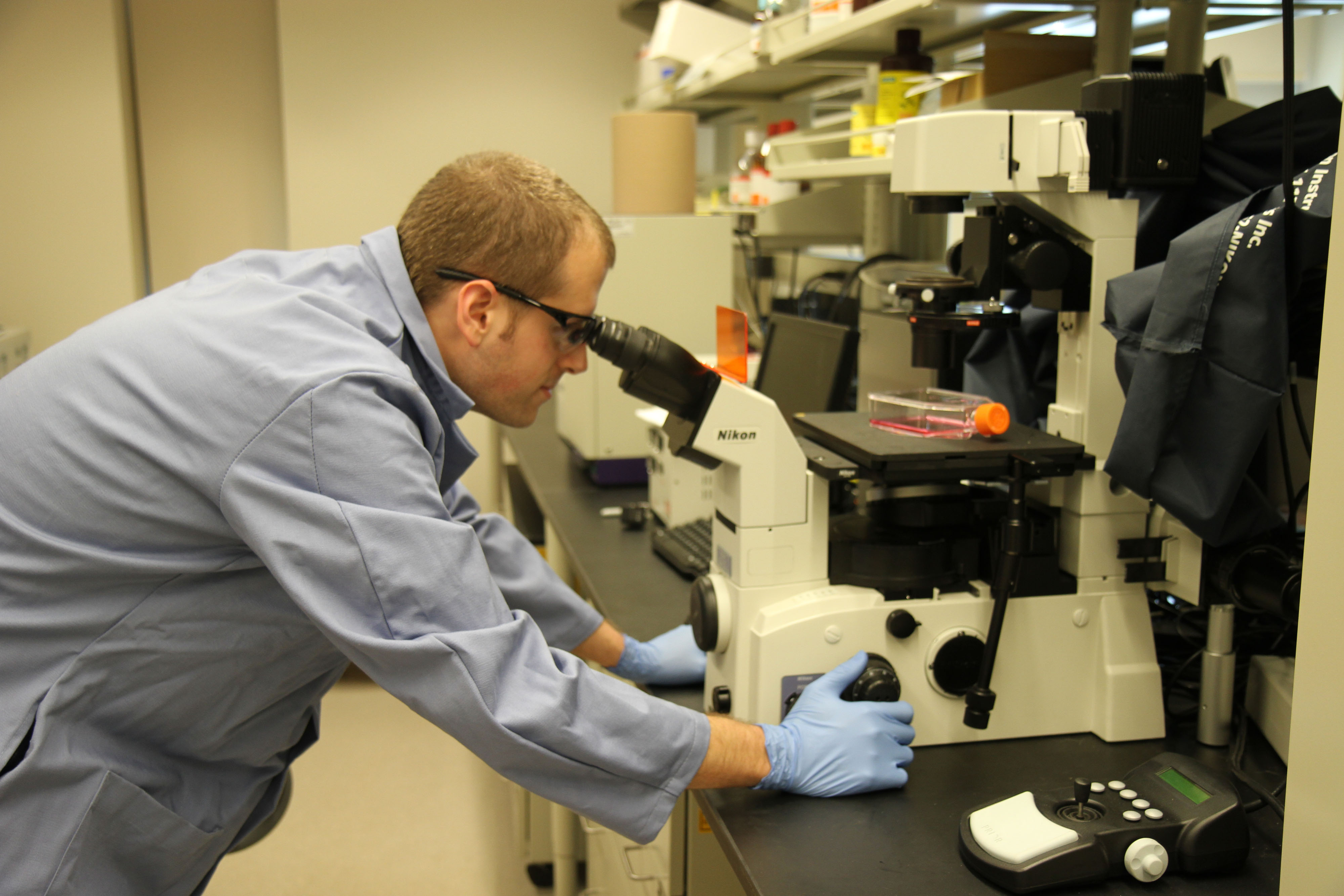Fralin graduate student invents new cancer drug delivery vehicle

Sean Hemp of Raleigh, N.C., a Ph.D. student in chemistry in the College of Science, is helping to invent new therapies that target genetic disease and cancer.
Working with Timothy Long, professor of chemistry in the College of Science and part of the Virginia Tech Center for Drug Discovery, Hemp creates polymers to deliver nucleic acid -- the molecules that carry genetic information within DNA and RNA.
“Sean exemplifies a genuine inventor. He has an unbridled passion coupled with keen intellect and infectious curiosity,” said Long.
Delivering foreign DNA and RNA to the body is difficult, but can serve several health benefits, especially in the case of genetic disease and cancer, according to Hemp. Effective uptake of nucleic acids allows for the delivery of genetic code that may correct malfunctioning DNA or eliminate mutating cells, such as cancer.
“The body’s natural defense system quickly detects naked DNA or RNA and eliminates them,” said Hemp. “Polymers are an important part of delivering the nucleic acid and targeting only cancerous cells.”
Collaborating with a local biotech company, Techulon, Hemp is developing a phosphonium-based polymer for the delivery of nucleic acid. Phosphonium groups are positively charged and the nucleic acids are negatively charged, so the two electrostatically bind to produce a nanoparticle. This process creates a capsule in which the nucleic acid is protected by the polymer. After this binding occurs, the nanoparticle remains positively charged, making it more likely for cellular uptake since the cellular wall is negative.
However, a major challenge in drug delivery is avoiding damage to healthy cells.
“Most cancer therapeutics are pretty indiscriminate. They harm all cells, not just cancer cells. That’s why someone undergoing chemotherapy can lose their hair,” said Hemp. “The addition of targeting groups to the nanoparticles enables the selective treatment of cancer cells over healthy cells.”
The cancer’s rapid growth makes its vulnerable. The rapidly growing cells need nutrients and the inclusion of these nutrients as part of the weaponized nanoparticle allows researchers like Hemp to target only cancerous cells.
In trial studies, Hemp’s team has been able to show the phosphonium polymer successfully delivers nucleic acid in a test tube. Working with Techulon, he translates this knowledge into application by preparing that polymer for in-vivo use.
Hemp has co-authored two papers which support these findings in Biomacromolecules journal: "Phosphonium-Containing Diblock Copolymers for Enhanced Colloidal Stability and Efficient Nucleic Acid Delivery" and "Phosphonium-Containing Polyelectrolytes for Nonviral Gene Delivery."
“The hope is to create the polymer. Once the drug delivery vehicle is there, researchers can change the nucleic acid and specifically tailor it to the type of cancer they are treating,” said Hemp.
“Sean will surely invent the future,” Long said. “His discoveries in siRNA delivery with serum stable vectors offers the chance to understand cancer treatment using unprecedented phosphorous-containing molecular structure.”




